with STEM™ CAREERS JOB KIT



Chart your course to a career studying life underwater
The world is in the midst of a marine construction boom. However, concrete seawalls, pilings, pontoons, marinas, and recreational and energy-generation structures lack the complexity required for a biodiverse marine environment, resulting in reduced marine life and lower water quality.
Macquarie University’s Living Seawalls project creates healthier oceans by improving the ecological performance of seawalls and other marine built structures. Modular, three-dimensional panels are attached to flat seawalls along foreshores around the world to provide habitat for seaweeds and marine animals, significantly increasing biodiversity levels.
When you major in Marine Science at Macquarie as part of the Bachelor of Science, you will study alongside researchers whose work was a finalist in the international Earthshot environment prizes in 2021 and received the 2023 NSW Coastal Management Award for Innovation. You’ll also be studying at the university ranked first in the world for the UN Sustainable Development Goal (SDG 14), Life Below Water (Times Higher Education Impact Rankings 2023).
You’ll develop your understanding of the linkages between biology, ecology and environmental science and how they apply to the management of marine issues. You’ll study organisms ranging from microbes to mammals, with a focus on iconic marine megafauna. You’ll apply the knowledge and skills you gain to independently analyse, research and creatively solve problems and be equipped to thrive in your career thanks to hands-on experience in industry- and researchrelated projects. You could assist with research into humpback whale migratory patterns, for example, study the behavioural ecology of sharks or social learning in fish – or apply ecological engineering solutions to marine infrastructure.


ARE YOU READY TO CREATE OASES FROM UNDERWATER DESERTS?
LEARN MORE

As a marine scientist, no two days are ever the same. Some days I’m teaching in a lecture theatre or lab, other days I’m underwater investigating the success of a seagrass restoration project.
At high school, I really wanted to work in a field that does something good for the environment. I also loved biology and the thrill of new discoveries. Marine science was a natural fit from there.

Marine science provides the foundation to develop real-world solutions to environmental problems. The field is important for climate change adaptation within coastal zones, studying marine megafauna, and providing insights into marine park issues, shark management, and marine mammal conservation.
The marine science major in Macquarie University’s Bachelor of Science is a particularly exciting specialty because it teaches students how and why our ocean environments are threatened,
Katherine Dafforn Associate Professor (Natural Sciences), Macquarie University
and then gives them the tools to manage and resolve it.
Marine scientists investigate changes in the oceans and their effects on marine ecosystems.
Students go on to develop strategies to adapt and mitigate the effects of climate change and play a part in safeguarding the health and sustainability of these ecosystems for future generations.
At Macquarie University, I co-lead the Living Seawalls initiative, which uses 3D printing technology to recreate habitats lost through coastal development, revitalising urban coastlines. This project exemplifies how science and environmental innovation can come together to make a tangible difference.
A STEM education equips students with the necessary skills to tackle complex environmental issues and fosters a new generation of marine scientists. Given the growing concerns about marine ecosystem health, there is an increasing need for professionals who can work on conservation projects, habitat restoration, and marine protected area management.
Katherine Dafforn Associate Professor (Natural Sciences), Macquarie University
With marine science! Here’s everything you need to know to get started
If you’re passionate about all things oceans, animals, the environment and making a difference, marine science could be a great study and career path for you. It’s also an excellent choice if you can’t see yourself doing a traditional desk job and love getting outdoors to discover new things!
Marine scientistists study life in the ocean – think animals, plants and other living things like bacteria and fungi. This involves lots of research and fieldwork to learn as much as possible about the ocean and to identify challenges (like climate change and human activity) for sea life and how this affects them. If building a sustainable future and helping life underwater thrive sounds good to you, it’s time to think about your next steps and how you can be part of making this happen.
In this deep dive, find out what it takes to become a marine scientist, your study options, where you could work, what tasks you’ll be doing, and how much you’ll get paid.
There are so many interesting areas marine scientists can work in. With a Bachelor of Science (Major in Marine Science) from Macquarie University, here are some of the jobs you could score:
• Environmental planner
• Aquatic biologist
• Aquaculturist
• Coastal zone manager
• Climate change consultant
• Ecotourism consultant
• Environmental conservationist
• Fisheries scientist
• Marine scientist
• Marine science researcher
• Marine park scientist
• Marine technician
• Lab manager

Pay day
The salary range for a biologistmarine is $45k-$101k, according to payscale.com
So what tasks will you be doing as a marine scientist? Every day is different, but you’ll be involved in lots of research. You might need to get out in the field and collect specimens and samples, or you might be in the lab analysing data, conducting experiments and writing reports on your findings.
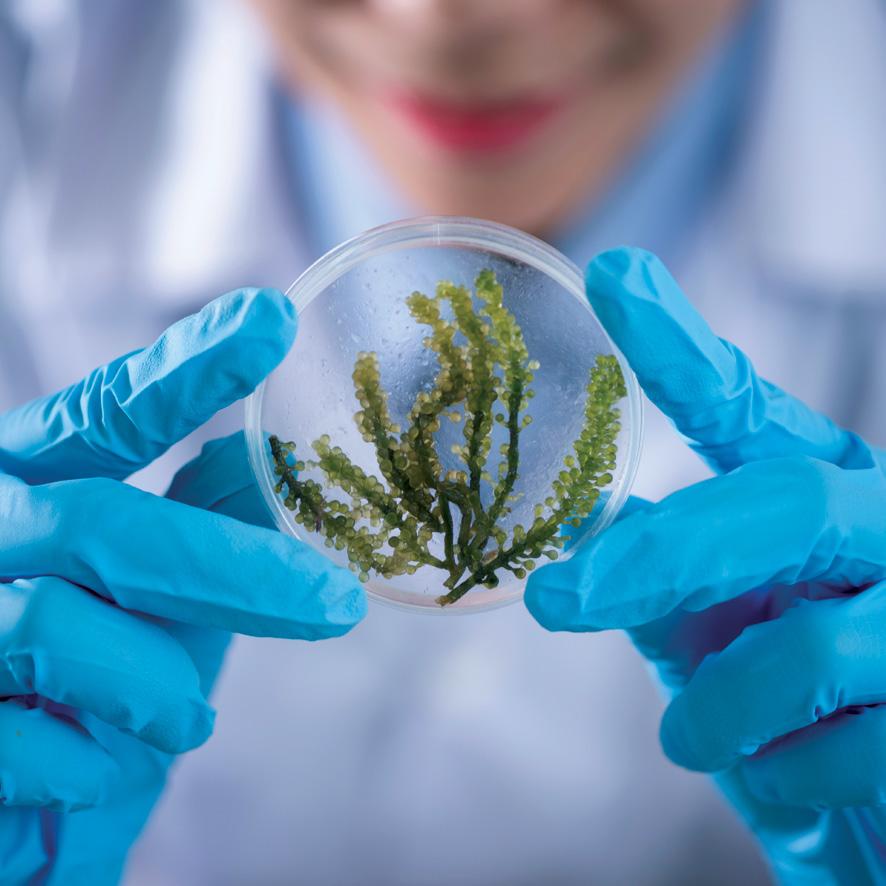
Get there
To become a marine scientist, study a Bachelor of Science (Major in Marine Science) at Macquarie University. Did you know that Macquarie University is internationally recognised as the number one university for UN Sustainable Development Goal #14 - Life Below Water? It’s also in the Top 100 QS World University Rankings for Earth and Marine Science.
Studying at Macquarie University has other perks too – a wide range of degrees and learning areas to potentially explore and pair up, flexible learning options and a campus built for collaboration where you can hang out with uni friends, eat, drink, exercise, shop… and study, of course!
Learn more about the degree


You’ll have a whale-of-atime in this gig if:
• You’ve been ocean obsessed since you were a little kid
• You adore animals
• Practical fieldwork sounds like a lot of fun
• Curiosity is your middle name
• You have good physical fitness and stamina
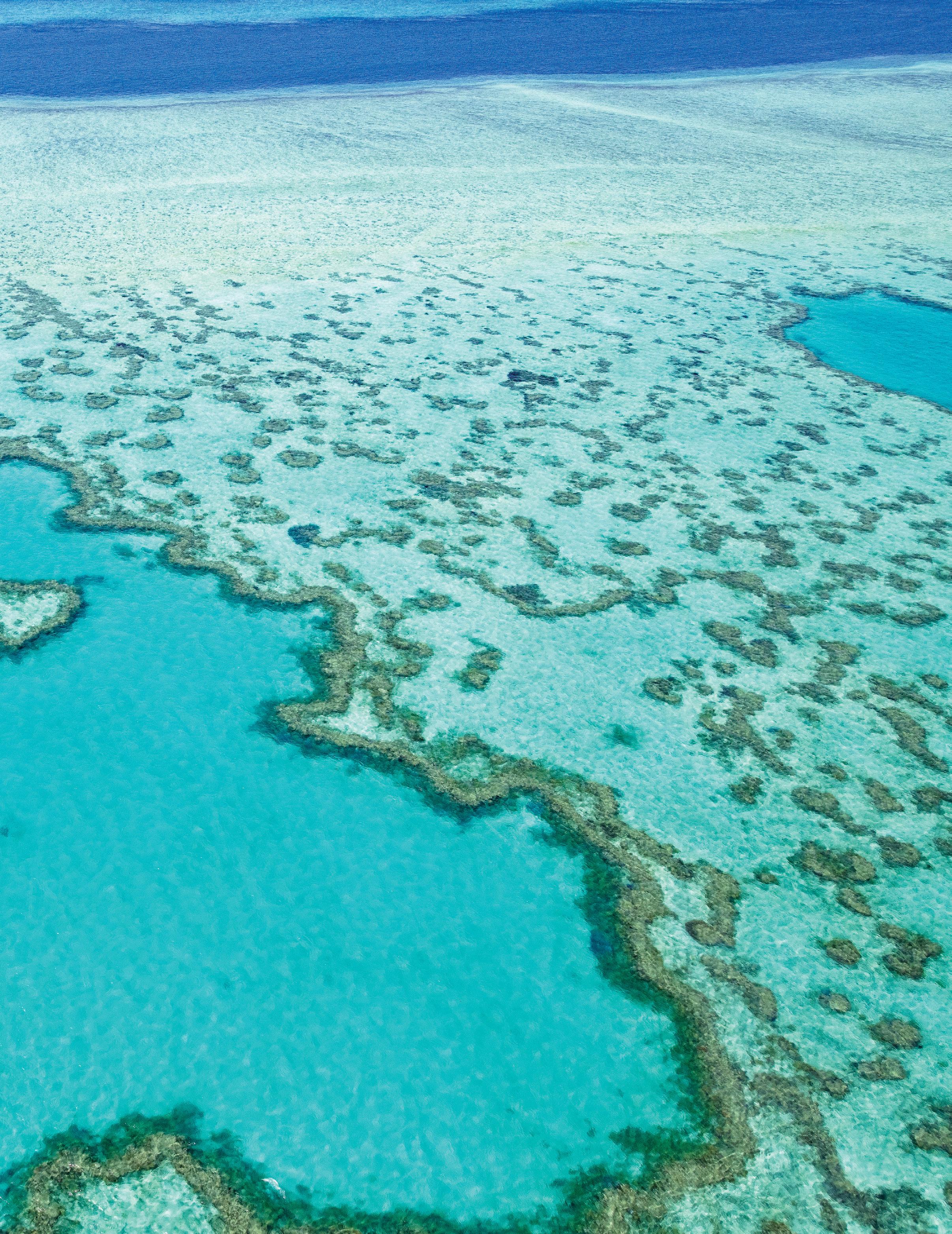
Lord Howe Island
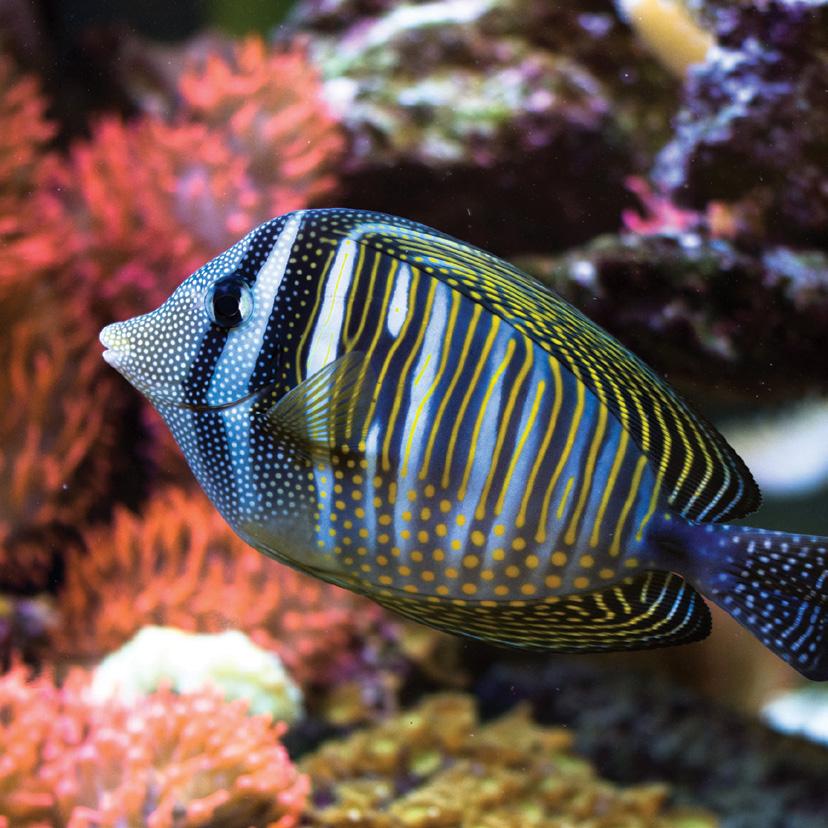
Australia needs workers with marine science skills! By 2026, there will be a 3.4% increase in jobs for life scientists (which includes marine scientists), according to the Australian Government.
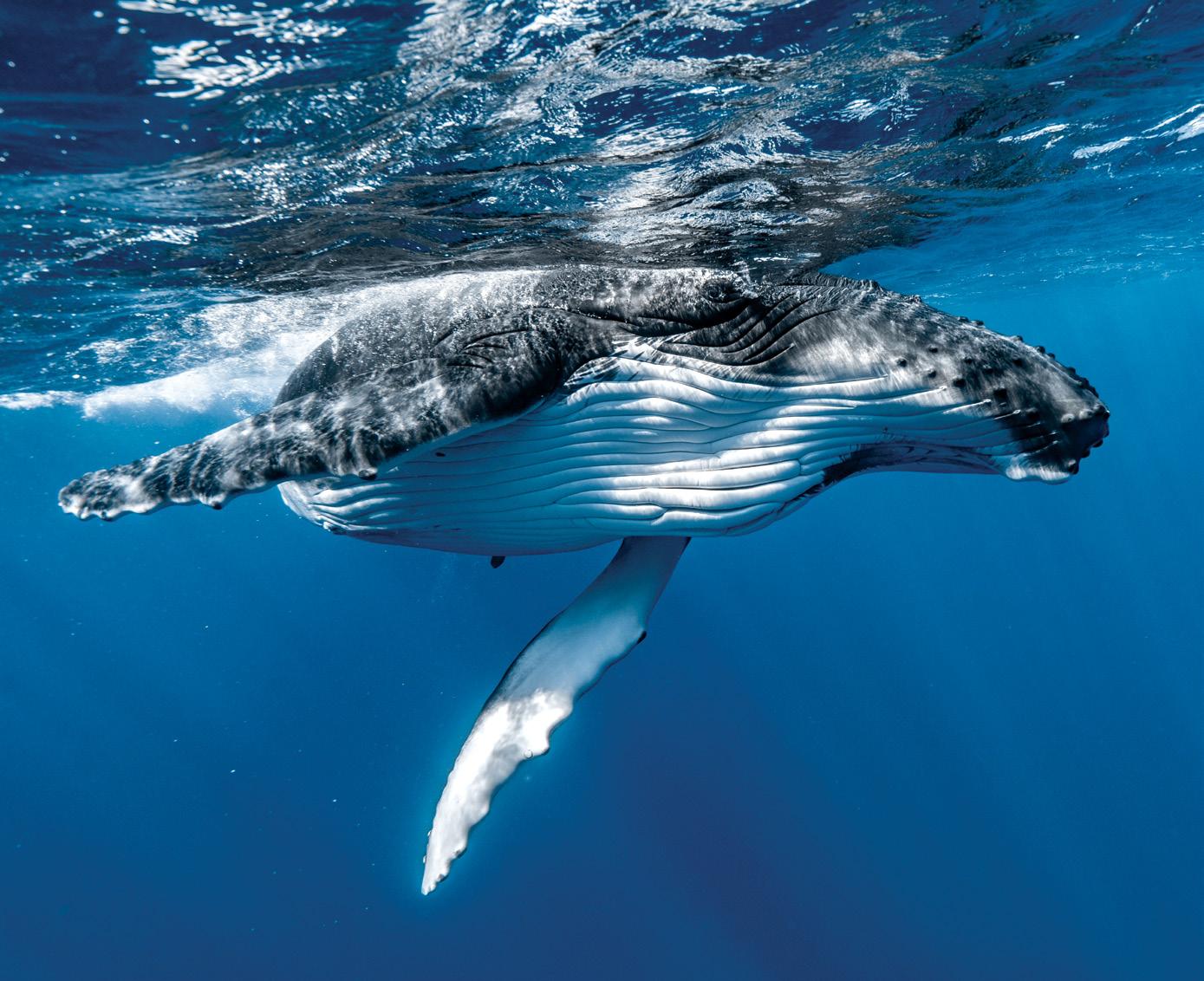
To be a marine scientist, you’ll need strong skills in: ✔ Analysis
A marine scientist usually works in a lab, at sea or at a research station. They can work for the government, private research labs, aquariums, zoos, museums or for universities.
✔ Communication and active listening ✔ Data ✔ Observation
Research ✔ Teamwork
Macquarie university student
Myles Lever is sailing through his science degree, with a little help from his other love - commerce

Hanging out with deep-sea animals and working from tropical islands is all in a future day’s work for Macquarie University undergrad Myles Lever. In fact, if the third-year student keeps nailing his Bachelor of Science units like he currently is - a career in marine science could be his calling.
“Marine science is of extreme importance to our society - and to me,” Myles says. “From an area of curiosity, I want to solve some of the [ocean’s] biggest problems.”
Already a seasoned fisherman before he’d even finished high school, it was Myles’ love of the ocean and fishing that pushed him to pursue tertiary studies in science.
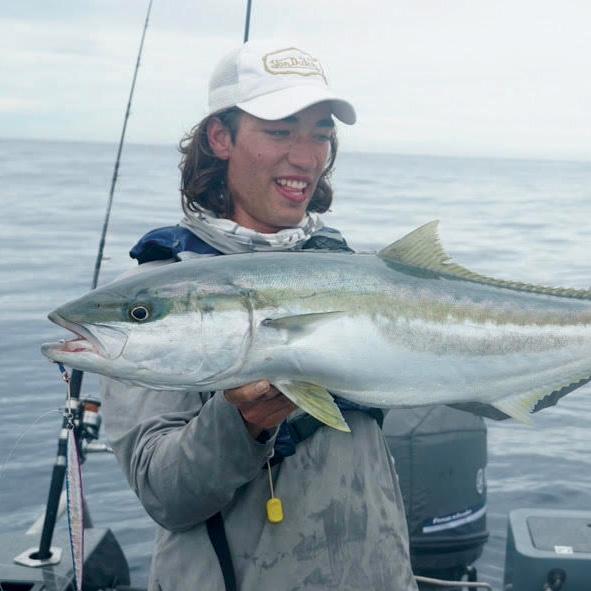
Having witnessed first-hand the impact of human pressures in our oceans, he set out to get skilled up in the science smarts needed to solve the planet’s environmental issues. And up there with the species he’s most driven to protect? Sharks! “I’m particularly passionate about them,” he says.
it’s so important we learn to balance economic needs with conervation of our oceans”
Making his degree a double and enrolling in a Bachelor of Commerce (Management) has proved a huge plus for Myles’ transferable skill set. Alongside his science (biology) units, he’s gaining valuable business and leadership skills, upping his employability and adding a major win to his CV.
“It’s so important that we learn to balance both people’s social economic needs with the sustainable conservation of our oceans and the species that inhabit them,” he says. “My passion [for this] is what inspires me to study what I do.”
With employers as diverse as fisheries, marine parks, museums, research organisations and universities, the marine science world really is Myles’ oyster.
Marine scientist Meg Trethewy grew up far from the coast - yet has created a career for herself in marine conservation
Tamworth isn’t exactly coastal. Yet for Meg, growing up in a rural city didn’t stop her from dreaming of the sea. “I’ve always had a fascination with the ocean,” she says. “Studying anything marine-related was always what I wanted to do.”
After attending a Macquarie University Open Day - and getting pumped on all things biology - Meg enrolled in a Bachelor of Marine Science.
current
A move to Sydney later and the ocean lover was lapping up units in conservation and ecology, and even enjoying regular field trips - to places like

The Great Barrier Reef and NSW’s stunning South Coast.
“I loved the diversity of the subjects and the practical experiences too,” Meg says. “I began to see that although there are lots of challenges facing the ocean, there are organisations trying to make changes too.”
Diving headfirst into investigative real-world projects allowed Meg to get a real taste for what a job in the field would involve - something she later valued after landing her research assistant gig for the Sydney Institute of Marine Science.

“My current role incorporates many of the skills that I picked up at uni — methods development, data analysis and community engagement,” she says. “I use these skills to rehabilitate lost ecosystems in Sydney Harbour as part of Project Restore.”
meg trethewy marine scientist
i loved the diversity of the subjects and the practical experiences too”
Day in the life…
9am
Arrive at the office to check emails and prep field trip gear.
10am
Meet with the research team and stakeholders to discuss the progress of Project Restore.
12pm
Head out to the field - by boat! - to deploy cameras and asses sea walls.
2pm
Retrieve the cameras via snorkel and check out what’s happening under water.
4pm
Head back to the office to review the footage and field notes and start analysing the data.
Want to prepare for your future career in marine science? Here are things you can do right now!

Find these awesome docos on Netflix!
AUSTRALIA’S OCEAN ODYSSEY
Take a journey across the Great Barrier Reef and see the diversity of its ecosystems and how ocean currents create life on Earth.
CHASING CORAL
This one is all about highlighting the disappearance of coral reefs from around the world and was made by divers, scientists and photographers.
MISSION BLUE
Follow oceanographer Sylvia Earle, who’s trying to save the world’s oceans from overfishing, pollution and other threats.
MY OCTOPUS TEACHER
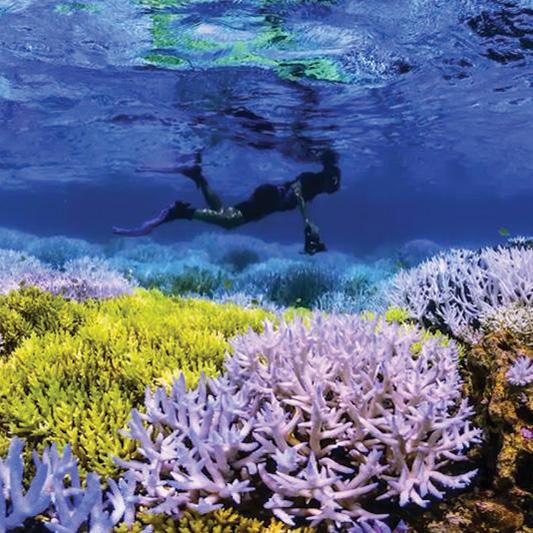
When a filmmaker becomes best friends with an octopus, she allows him into her underwater world in a South African kelp forest. P.S. Bring the tissues!
PUFF: WONDERS OF THE REEF
Trail a baby pufferfish through an incredible microworld filled with the most amazing creatures as he searches for the perfect home on the Great Barrier Reef.
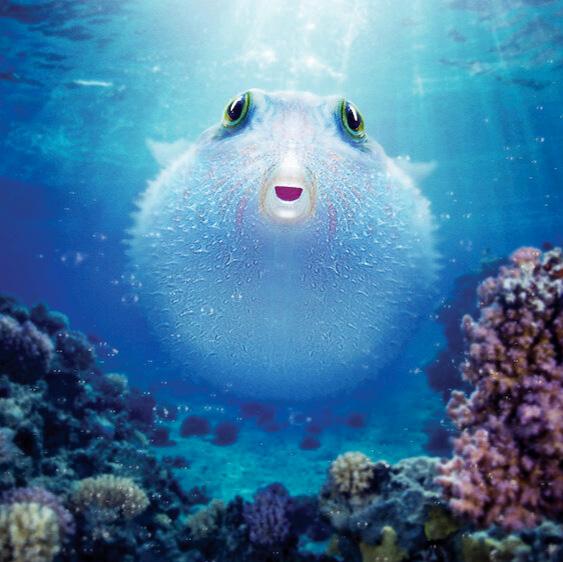
SEASPIRACY
A filmmaker sets out to document the harm humans are doing to marine species but ends up uncovering alarming global corruption.
Electives checklist
Maths
Geography
Physics
These scientists will show exactly what it’s like to work in marine science.
@drvanessapirotta (Instagram + TikTok)
Australian wildlife scientist and communicator who knows a lot about whale snot!
@marinebiologywithyaz (Instagram + TikTok)


A PhD student studying the teeny tiny organisms in the ocean.
@seaturtlebiologist (Instagram)
Follow her quest to protect one of the most ancient animals on Earth.

Jaw-some books to borrow from the library!· Shark Attacks: Myths, Misunderstandings and Human Fear by Blake Chapman
Oceans: Science and Solutions for Australia by Bruce Mapstone
Humpback Highway by Dr Vanessa Pirotta
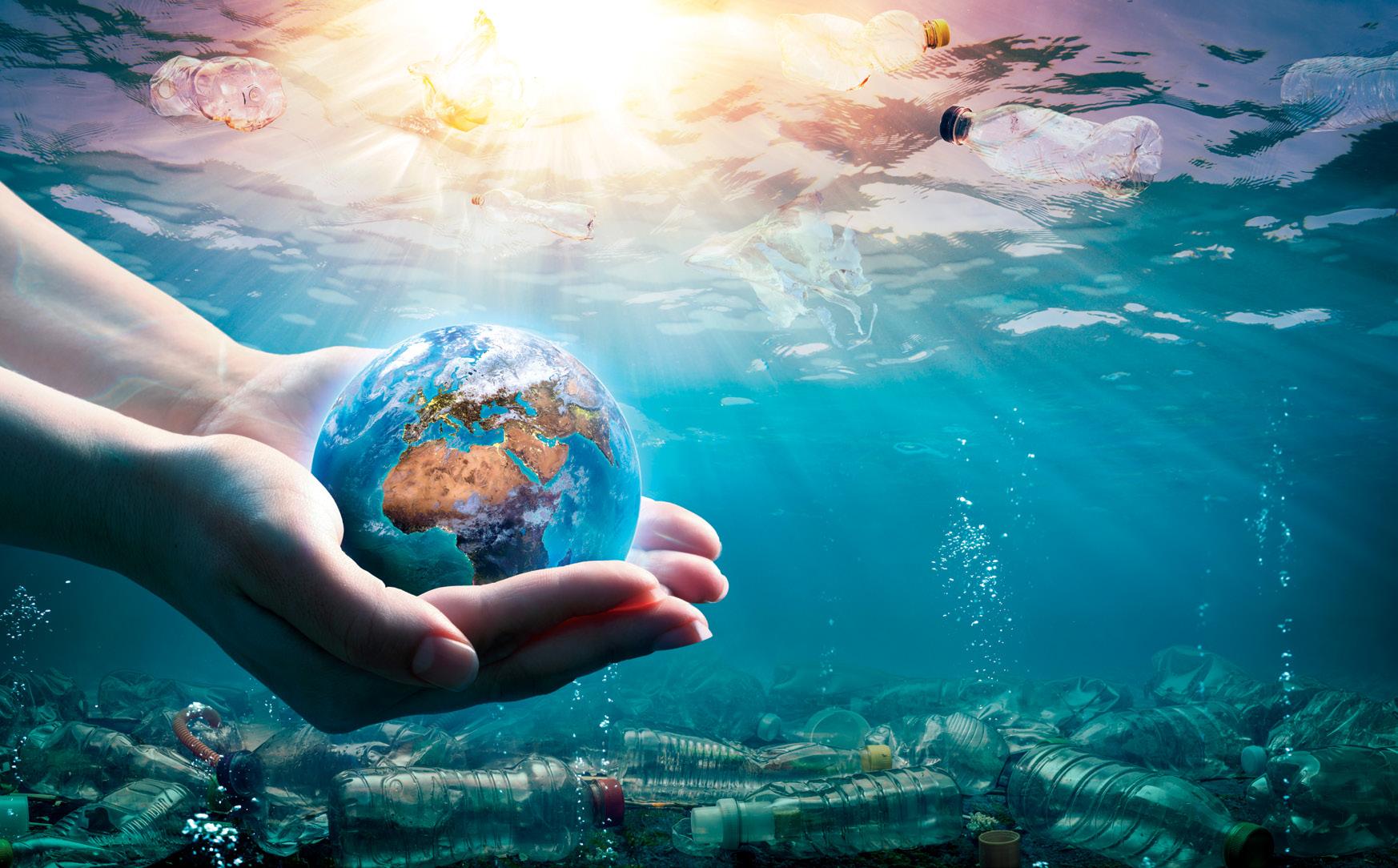
Each year, World Oceans Day is celebrated on June 8. It’s a day to raise global awareness of our oceans and how important they are to life on Earth. Use this opportunity to chat with family, friends, classmates and teachers about how our oceans are experiencing threats like loss of habitat, plastic pollution, overfishing and negative effects from climate change. You could also take to your socials using the hashtag #WorldOceansDay to help spread the message.
Find out more about the UN’s Sustainable Development Goals and the Ocean Decade we’re currently in at sdgs.un.org/goals